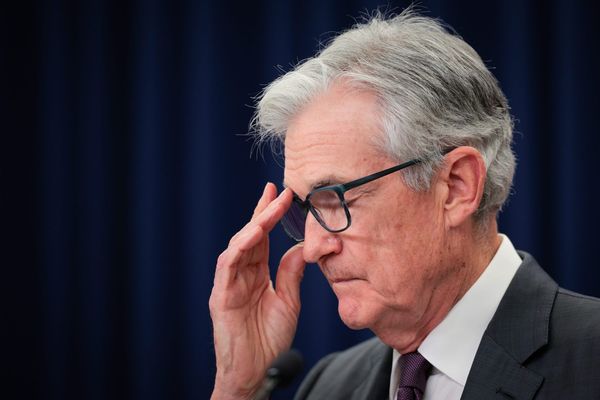
After he saw his distant family members and some friends lose money in the 2008 market crash, Vishal Khandelwal quit his job and took the entrepreneurial plunge in 2011 to teach people how to make the right investments and not lose their money. He pre-paid his home loan and launched Safal Niveshak, an online initiative to make people better investors.
Emphasising that he’s not a full-time investor, he says, “I invest when I have money from all other things I do." He identifies himself as an educator, blogger and even an illustrator first, and then an investor. His investment newsletter, ‘The Journal of Investing Wisdom’ has over 90,000 subscribers. He conducts detailed courses on investing and has authored three books — 'The Sketchbook of Wisdom', 'Two Wise Men' and 'Mental Models'. Khandelwal talks about his personal investment journey and how he founded Safal Niveshak in an interview with Mint as part of the special Guru Portfolio series. Edited excerpts:
How did your personal investment journey begin?
It was largely by accident. I had seen my father trading in the stock market during the Harshad Mehta and Ketan Parekh days. I had a fair idea of how the stock market worked but never consciously thought of getting into it.
I finished my MBA in 2003 and there were very few jobs out there then. The only job that came my way was that of a stock market analyst. This is where my journey started. I gradually started liking my work in terms of understanding companies, talking to the management and identifying strategies that companies use for growth, and I started implementing these in my own investments. I have not looked back since. Over time, I also came to know more about Warren Buffett and Charlie Munger whose teachings have served me well.

You might also like
India's highways beckon retail investors
After Musk takeover, what’s next for Twitter?
What are bank credit growth figures telling us?
What will it take for the SBI Cards stock to recover?
How did you come up with the idea of Safal Niveshak?
I think the idea was serendipitous. I come from a Marwari family, and it’s very difficult for us to work under someone else. We are naturally trained to be business owners. But I was very secure in my job and addicted to the salary. In the first five years of my career, I realized that every recommendation that I had made had gone right. So, as an analyst, you start thinking of yourself as the master of the universe and you don’t realize then that it’s largely because of the bull market.
However, when in 2008 (the fifth year of my job) the stock market crashed, I saw a lot of my distant family members and friends losing a lot of their money given that they were taking tips from brokers and the wrong advisers. So, I realized that probably this was my calling — teaching people how not to lose their money. But I did not start in 2008, because I had a financial liability in the form of a home loan. Around December 2010–January 2011, I completely repaid my home loan and then I submitted my resignation.
I did not know exactly what I was going to do but writing was something I really loved and coming from the stock market, I realized that I could put that writing to use. So, I started Safal Niveshak. I chose this name because it is the Hindi term for ‘successful investor’ and I wanted to start financial literacy in Hindi. However, I realized, probably there’s a bigger English-speaking audience even in the Hindi heartland. So, I decided to start with English but kept the name Safal Niveshak.
How would you describe yourself as an investor?
I started my career as an analyst with an independent equity research company. I never worked for a broker. When your employer (broker) earns commissions from trades, there’s a lot of buy-sell, buy-sell recommendations. With an independent research company, I had the freedom to think long term. So, the idea of conservatism actually got seeded very early in my life. I have never been a trader. I don’t do derivatives. My investment strategy is to buy high-quality business that I should not be selling anytime soon. It’s like 'buy and hold forever', till the time the business remains good. But it’s not 'buy and forget'. I review my portfolio once every year.
How is your portfolio split between equity, debt, real estate, gold, alternative assets and cash?
Real estate is basically for consumption (living in your own house). In terms of financial assets, 95% is in equity and around 5% in debt and cash. I don’t believe much in gold, only buy it when my wife wishes for it. I maintain cash only for emergency funds and this is around 8-9 months’ worth of expenses in my bank account.
Did you start with stocks or mutual funds?
My first investment was a stock. As an analyst, I was not allowed to invest in my own sectors. But there were certain companies that I had known since my childhood as my family was involved in certain businesses. I started investing small amounts in some of these, and in some MF SIPs. The first scheme I invested in was HDFC Prudence Fund which I held for a long time.
Any stock pick that worked really well? And those that haven’t?
Pidilite Industries, which I have been holding for 11 years, has multiplied 14-15 times. But this is not a recommendation on Pidilite Industries. Among the stocks that have not worked for me is Hotel Leela Ventures, which I bought at the start of my career and later realized was a bad business. Another was Swaraj Engines which was a good business but I sold the stock because it hadn’t moved in three years. Arvind Ltd. was another such stock.
Is there any investment strategy that has worked for you and any missed opportunities?
The very first stock which I actually wanted to buy was Asian Paints. But at that time, my broker told me that the stock had jumped 20% in two days. So, I decided to wait for the stock to fall. I have come to realize that if you are a long-term investor, a 10-50% jump or drop in the stock price is not going to make a meaningful difference. If you find a good business, you should pay for it even if the stock has increased by 50% or has doubled, if your investment horizon is 15-20 years. Good quality businesses don’t fall to cheap levels anymore. The only way an investor can get an edge over others is by buying high-quality business at sufficiently reasonable prices and staying invested in them for as long as they keep performing.
One fundamental strategy that has worked for me is to avoid noise completely. I don’t read newspapers. I avoid social media except for posting my articles and ideas because that is really fundamental to becoming a sensible long-term investor.
How did you react to the March 2020 Covid market fall?
This was an amazing opportunity after 2008, and so I invested around 50% of the cash that I had in March and April 2020. That was the biggest ever investment I had made in the previous 10 years in any given year. And like a typical investor, I thought, "Let me wait for the markets to crash further." So, I kept waiting to invest the remaining 50%. I gradually did invest some of this money. I could have probably invested more. But there’s no regret.
What’s your advice to people who want to give up their jobs for full-time investing? Do you need a certain minimum corpus to make this switch?
Generally, I advise people against becoming full-time investors because this is not a full-time activity. The less time you give to it, the better off you are because then you are not taking action all the time and you are not focusing on stock prices and companies all the time. I am not a full-time investor. I am more of an educator, blogger and an illustrator and then an investor. Investing is what I do when I have money from all other things I do.
As far as the corpus is concerned, what I realize is that people keep changing their goalposts (moving them up). So, people need to have a sense of how much is enough. How much is enough to sustain you in a sensible manner and meet your financial goals. Second, if you really love investing for the process, you can do that full time if you have enough money to take care of your household by way of dividends. But investing is not as simple as it sounds. It’s 99% good behaviour. You feel very lonely when you are investing on your own because you’re not working in a social environment. You also need to have complete family support for this.
Elsewhere in Mint
In Opinion, Manu Joseph tells how Rishi Sunak makes an ideal ambassador of Hinduism. Data analysis by Jayati Sharma & Sahil Deo shows India has gained stature at the US. Sandipan Deb tells why Europe's "garden" is under a severe attack of blight. Long Story predicts the future of the present energy crisis.








